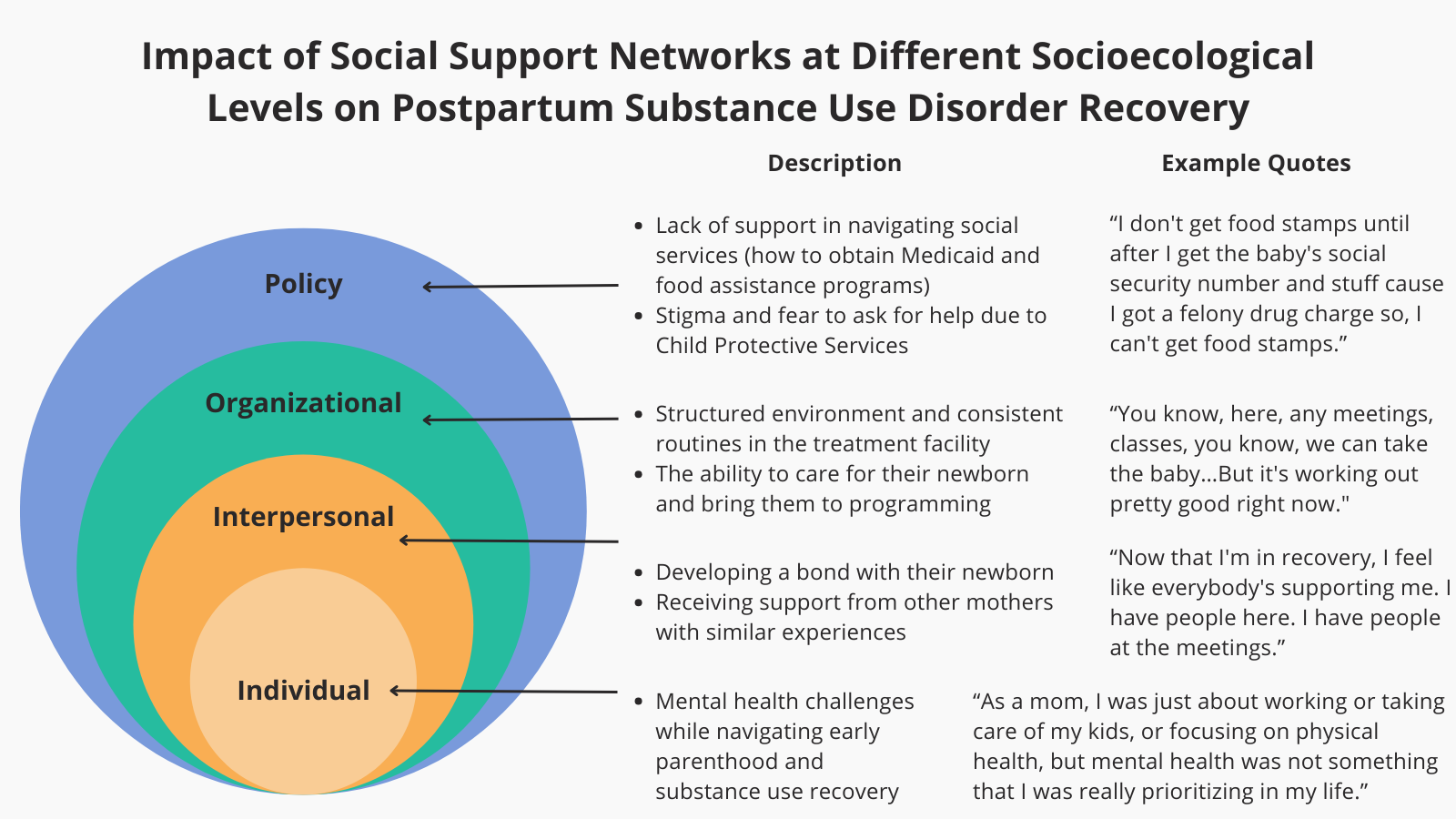STASH, Vol. 21(9) – The impact of social support networks on postpartum substance use recovery
The postpartum period is a time of many physical, social, and emotional challenges. Women are typically physically recovering from childbirth and navigating the demands of newborn care. These challenges are exacerbated among postpartum women with substance use disorders, as they are also managing their substance use and are more likely to experience cooccurring mental health conditions. However, adequate social support can play an important role in postpartum and substance use disorder recovery. This week, STASH reviews a study by Leah Holcomb and colleagues that examined the impact of social support networks on substance use disorder recovery among postpartum women.
What was the research question?
How do social support networks and systems shape substance use disorder recovery among postpartum women?
What did the researchers do?
The researchers individually interviewed 22 women who gave birth within the past year and were diagnosed with a substance use disorder within the past five years. Participants were predominantly White (81.8%), followed by Black (9.1%) and other races (9.1%). All participants were recruited from a residential substance use treatment facility in southeastern United States. The researchers asked participants questions about their social networks and perceived barriers to social support. They then used thematic analysis to identify key themes.
What did they find?
The researchers identified four overarching themes: individual, interpersonal, organizational, and policy (see Figure). On an individual level, participants said they felt lonely and struggled with their mental health as they balanced parenting responsibilities and sustaining recovery. On an interpersonal level, they acknowledged that developing a deep bond with their newborn and receiving support from other mothers in the same stage of life were helpful. On an organizational level, participants appreciated the treatment facility’s structured environment and the ability to bring their children to programming. Finally, on a policy level, participants noted that there was a lack of support in navigating social services, particularly for accessing Medicaid and food assistance programs. They also mentioned that Child Protective Services involvement created fear, stress, and discouraged them from seeking support.

Figure. Aspects of participants’ social support networks that impacted their substance use disorder recovery, with relevant quotes from participants. Click image to enlarge.
Why do these findings matter?
There are many aspects of a mother’s social environment that can impact her postpartum and substance use disorder recovery. Those in recovery often find support from peer relationships and trusted programs, but still experience loneliness and face barriers to accessing certain resources. This emphasizes the importance of creating family-centered recovery programs that provide peer support, holistic substance use and mental health treatment, transparency about social services and CPS processes, and wraparound services (e.g., similar to Massachusetts’ Moms Do Care program and Washington’s Maddie’s Place).
Every study has limitations. What are the limitations in this study?
Most participants were White and reported using opioids or methamphetamines, so the findings might not apply to other racial groups or individuals who use different substances. Additionally, participants were all from one inpatient treatment facility where they were allowed to continue caring for their newborn, so their perspectives may differ from those receiving outpatient treatment or navigating recovery without their newborn.
For more information:
Postpartum Support International provides resources for postpartum individuals. If you are worried that you or someone you know is experiencing addiction, the SAMHSA National Helpline is a free treatment and information service available 24/7. SAMHSA also provides fact sheets and brochures about substance use prevention specifically for youth and college students. For more details about addiction, visit our Addiction Resources page.
— Annette Siu
Want CE credit for reading BASIS articles? Click here to visit our Courses Website and access our free online courses.